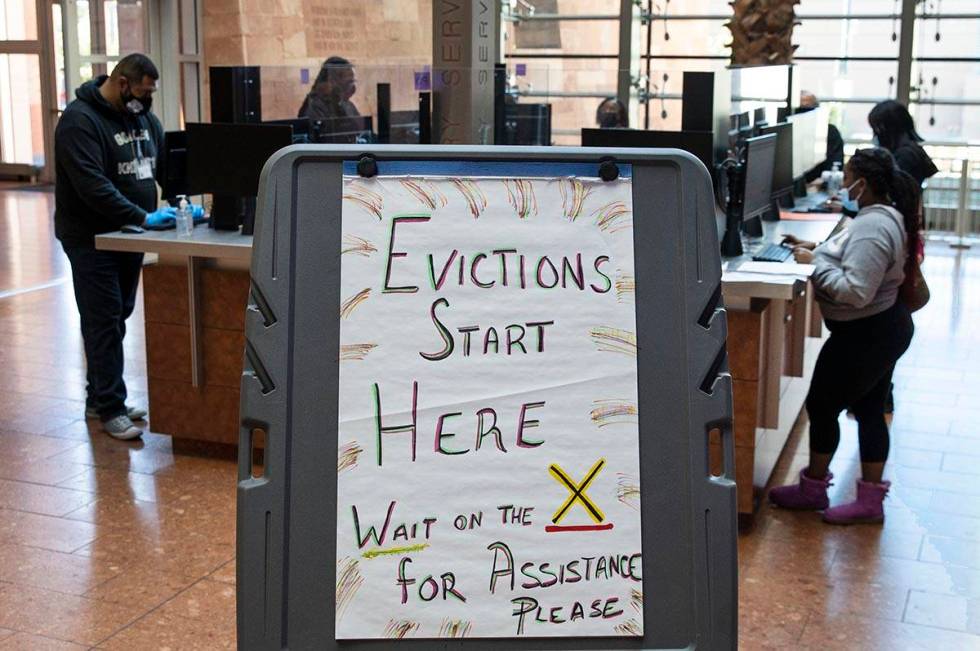VICTOR JOECKS: End the eviction moratorium

Property owners are supposed to have property rights. It’s past time to end the eviction moratorium.
Last year, both the state and federal governments imposed eviction bans based on the pandemic. The moratoriums are set to expire at the end of March. It’s expected the Centers for Disease Control and Prevention will extend its moratorium, although it’s not certain. Regardless of what the CDC does, Gov. Steve Sisolak could also extend Nevada’s restriction on evictions.
Leave aside whether the moratorium was appropriate during the height of the coronavirus crisis. The crisis is over, and the moratoriums should expire as scheduled.
Nevada’s coronavirus data continue to look good. The state’s 14-day rolling average of new cases is under 200. It peaked around 2,700 in December. The 309,000 Nevadans who are 70 and over have received more than 250,000 doses of the vaccine according to state data. Some vaccines do require two shots. Because that cohort accounted for 63 percent of coronavirus deaths, there will be far fewer deaths if there is a resurgence of cases.
The pace of Nevada’s vaccine distribution has dropped by 21 percent in recent days. That means Nevada senior citizens, who are most vulnerable to the virus, have had the chance to receive a vaccine if they wanted it.
Nevada’s economy is recovering, too. The Strip is crowded again. March Madness attracted many visitors. The Nevada-California border had a 12-mile traffic jam last weekend. It’s true that, at 8.1 percent as of January, Nevada still has one of the highest unemployment rates in the country. That’s not crisis level though.
Losing your lodging is undoubtedly a personal crisis. But it’s likely that will happen to millions of people whenever the moratoriums expire. Around 10 million people — or 18 percent of renters — are behind on their payments. That includes all those behind on their rent, not just those affected by the virus. The typical renter owed $5,600 in back rent, utilities and late fees. That’s according to a January analysis from the chief economist at Moody’s Analytics.
Understandably, elected officials and federal bureaucrats feel badly for those hurt economically by the pandemic. But that’s not a sufficient justification to violate other people’s rights.
The fundamental duty of government is to protect people’s rights, including property rights. Landlords own their property and choose to rent it out. If the renter stops paying, they have a right to regain the use of their property.
Imagine if the roles were reversed. You signed a year’s lease with an option to renew indefinitely for modest rent increases. But after the value of the property skyrocketed, the landlord asked local politicians to invalidate your agreement in order to increase the rent. It’s easy to see the injustice of that situation.
But you don’t lose property rights by acquiring more property. Whether a landlords own one property or 10,000, they have the right to expect that tenants pay the agreed upon rent.
Philanthropy is when one person voluntarily gives something to another. That’s noble. Government officials engage in false philanthropy; they take something from one person and give it to another. That’s unjust.
Extending the eviction moratorium would be a prime example of false philanthropy in action.
Contact Victor Joecks at vjoecks@reviewjournal.com or 702-383-4698. Follow @victorjoecks on Twitter.